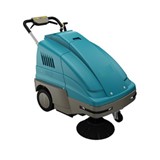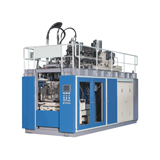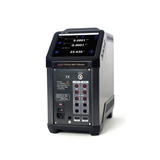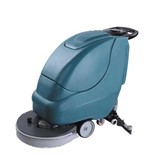As I move around a noisy, smoggy but very excited city, I notice Australia everywhere. Of course, there are the highly visible symbols of Australia, such the water cube designed by Australian architects PTW.
Their story is well known. PTW won the Beijing contract after Austrade entered them in a Beijing Olympics competition – bidding for design for the main arenas and the Olympic Village - on the back of their award winning design at for the Aquatic Centre Homebush at the Sydney Games in 2000.
PTW CEO John Bilmon and his China representative, John Pauline, have been effectively ambassadors for Australian design everywhere here and have developed high profiles in general. In fact, Australian designers and architects in general have done very well, with at least 6 major Olympic arenas being Australian-designed and many Australians acting as consultants to those designed locally by their Chinese counterparts.
Outside Beijing too, Australian architects such as Bligh Voller Nield, Cox Architects, URS, and Allen Jack + Cottier, Tim Court & Co have designed the sailing base in Qiangdao, the stadium in Tianjin and the Hong Kong Equestrian Centre.
Australia has also made a major contribution to high profile symbols of the Games. For example BHP Billiton has provided the ores in the medals Bluescope has provided materials for the Olympic Torch, and the Torch relay was organised by Australian company, Maxxam International, led by their energetic managing director Di Henry.
However, this is just the tip of the iceberg. As well as the very visible symbols of Australia’s contribution to this Olympic Games, behind the scenes, Australian exporters – large and small – have been helping China to put on the greatest show on earth. For example, the lighting control systems in the hotels and the Olympic venues have been manufactured by Sydney company Dynalite led by the irrepressible Jimmy Du, the smoke alarm systems by Xtralis, the artificial turf in the hockey field is engineered by Sports Technology International and Argus has provided the mobile phone antenna’s in another Olympic landmark, the ‘bird’s nest’ stadium.
Getting around the city is always difficult at Olympic time. However, the Beijing Olympic organisers were keen to learn from the Sydney 2000 team in terms of logistics. As a result, GHD has been in charge of the Beijing transport design and contract reviews on the back of their success in Sydney, the Middle East and all over the globe. Similarly, another Australian company SmartTrans has provided GPS tracking technology to optimise travel routes around Beijing to the different Olympic venues and Linfox has acted as a logistics adviser to BOCOG.
The logistics operations stemmed from Chinese authorities desire to keep down pollution levels and make Beijing a ‘green’ games just like Sydney. In order to assist Beijing meet its environmental aspirations, Melbourne company Biograde is helping with plastics recycling. Biograde is one of a number of ‘green’ exporters coming from Australia to China to help in areas of clean energy, recycling, and other sectors that China needs to boost its environmental capability. Companies like Roaring 40s and education institutions like UNSW are part of the clean energy mission led by Trade Minister Simon Crean.
Do you remember the very successful volunteer concept at Sydney 2000? As an example of ‘knowledge exports’ TAFE Global has been Beijing in the lead-up to help China develop its own volunteer support for the Games, and believe me, the Beijing Olympic volunteers are there in force from the moment you step of the plane in Beijing’s brand new space age international airport.
In fact, the volunteers are symbolic of all the service exports provided by Australia to China with Telstra providing telecommunications strategy advice, Macquarie Bank providing financial services advice, Great Big Events and Major Event Planning helping with event management and sports marketing. Of course, many individual Australians have been working as consultants to BOCOG (and to London), the most prominent being Sandy Hollway, who has been assisting both Beijing and the International Olympic Committee in using the ‘legacy’ of the Sydney Games to boost Beijing.
In conclusion, whilst China wants Beijing to be the ‘green’ games, in some ways, based of what I have seen of Australia here, we could call them the ‘green and gold’ games. Let’s hope our athletes bring back the gold medals to add to the gold rush won by Australian exporters in Beijing.
- Suppliers
- New to IndustrySearch? Book a Demo
- Advertise with us
- Login
- Email Marketing
- Buyers
- Get Quotes
- Articles & Ideas
- Login
- Subscribe to newsletter
- My Details
- Get Quotes
- Automation & Control
- Automotive Workshop Equipment
- Commercial Cleaning Equipment & Supplies
- Construction Equipment & Heavy Machinery
- Conveyor Systems & Components
- Electrical & Power Generation Equipment
- Electronic Components
- Farming & Agriculture
- Food & Beverage Processing
- Forklifts & Forklift Attachments
- Hydraulic & Pneumatic Equipment
- Industrial Materials, Tools & Components
- Industrial Pumps
- IT Hardware & Industrial Computing
- IT Software & Applications
- Laboratory Equipment & Instruments
- Manufacturing & Industrial Equipment
- Material Handling & Lifting Equipment
- Metalworking & Machining
- Mining Equipment & Machinery
- Packaging & Labelling Machinery
- Pallet Handling Equipment
- Personal Protective Equipment
- Security & Surveillance
- Test & Measurement
- Transport & Logistic Equipment
- Warehouse Storage, Shelving & Racking
- Waste Treatment & Environmental Management
- Welding Machines & Accessories
- Woodworking & Joinery Machines
- Workplace Equipment
- Workplace Safety Equipment
- Get Quotes
- Automation & Control
- Automotive Workshop Equipment
- Commercial Cleaning Equipment & Supplies
- Construction Equipment & Heavy Machinery
- Conveyor Systems & Components
- Electrical & Power Generation Equipment
- Electronic Components
- Farming & Agriculture
- Food & Beverage Processing
- Forklifts & Forklift Attachments
- Hydraulic & Pneumatic Equipment
- Industrial Materials, Tools & Components
- Industrial Pumps
- IT Hardware & Industrial Computing
- IT Software & Applications
- Laboratory Equipment & Instruments
- Manufacturing & Industrial Equipment
- Material Handling & Lifting Equipment
- Metalworking & Machining
- Mining Equipment & Machinery
- Packaging & Labelling Machinery
- Pallet Handling Equipment
- Personal Protective Equipment
- Security & Surveillance
- Test & Measurement
- Transport & Logistic Equipment
- Warehouse Storage, Shelving & Racking
- Waste Treatment & Environmental Management
- Welding Machines & Accessories
- Woodworking & Joinery Machines
- Workplace Equipment
- Workplace Safety Equipment
Trusted by 1,000,000+ Australian industrial buyers
Buyers
- Discover products & solutions
- Login
- Subscribe To Newsletter
- Browse All Products
- Read Articles
Suppliers
Advertise
- Promote your products & solutions
- New to IndustrySearch? Book a Demo
- Login / Forgot Password
- Advertise Your Products
- Success Stories
- Email Marketing
- Suppliers
- Advertise with us
- Login
- Email Marketing
- Buyers
- Get Quotes
- Articles & Ideas
- Login
- Subscribe to newsletter
- My Details
Get Quotes
- Automation & Control
- Automotive Workshop Equipment
- Commercial Cleaning Equipment & Supplies
- Construction Equipment & Heavy Machinery
- Conveyor Systems & Components
- Electrical & Power Generation Equipment
- Electronic Components
- Farming & Agriculture
- Food & Beverage Processing
- Forklifts & Forklift Attachments
- Hydraulic & Pneumatic Equipment
- Industrial Materials, Tools & Components
- Industrial Pumps
- IT Hardware & Industrial Computing
- IT Software & Applications
- Laboratory Equipment & Instruments
- Manufacturing & Industrial Equipment
- Material Handling & Lifting Equipment
- Metalworking & Machining
- Mining Equipment & Machinery
- Packaging & Labelling Machinery
- Pallet Handling Equipment
- Personal Protective Equipment
- Security & Surveillance
- Test & Measurement
- Transport & Logistic Equipment
- Warehouse Storage, Shelving & Racking
- Waste Treatment & Environmental Management
- Welding Machines & Accessories
- Woodworking & Joinery Machines
- Workplace Equipment
- Workplace Safety Equipment
Get Quotes
- Automation & Control
- Automotive Workshop Equipment
- Commercial Cleaning Equipment & Supplies
- Construction Equipment & Heavy Machinery
- Conveyor Systems & Components
- Electrical & Power Generation Equipment
- Electronic Components
- Farming & Agriculture
- Food & Beverage Processing
- Forklifts & Forklift Attachments
- Hydraulic & Pneumatic Equipment
- Industrial Materials, Tools & Components
- Industrial Pumps
- IT Hardware & Industrial Computing
- IT Software & Applications
- Laboratory Equipment & Instruments
- Manufacturing & Industrial Equipment
- Material Handling & Lifting Equipment
- Metalworking & Machining
- Mining Equipment & Machinery
- Packaging & Labelling Machinery
- Pallet Handling Equipment
- Personal Protective Equipment
- Security & Surveillance
- Test & Measurement
- Transport & Logistic Equipment
- Warehouse Storage, Shelving & Racking
- Waste Treatment & Environmental Management
- Welding Machines & Accessories
- Woodworking & Joinery Machines
- Workplace Equipment
- Workplace Safety Equipment
Trusted by 1,000,000+ Australian industrial buyers








